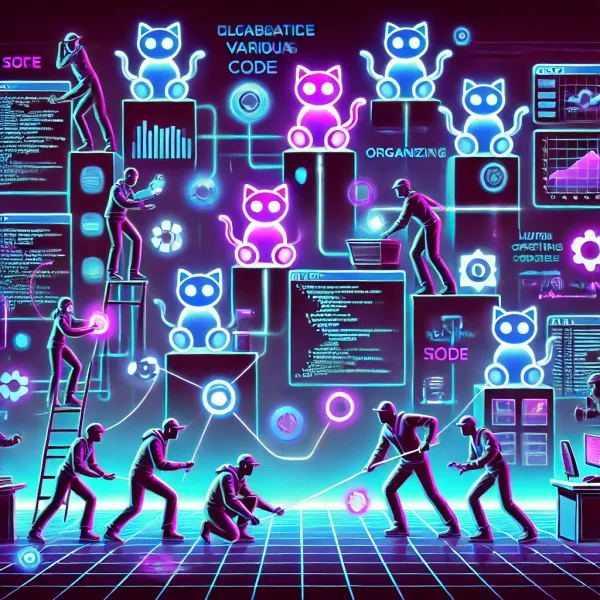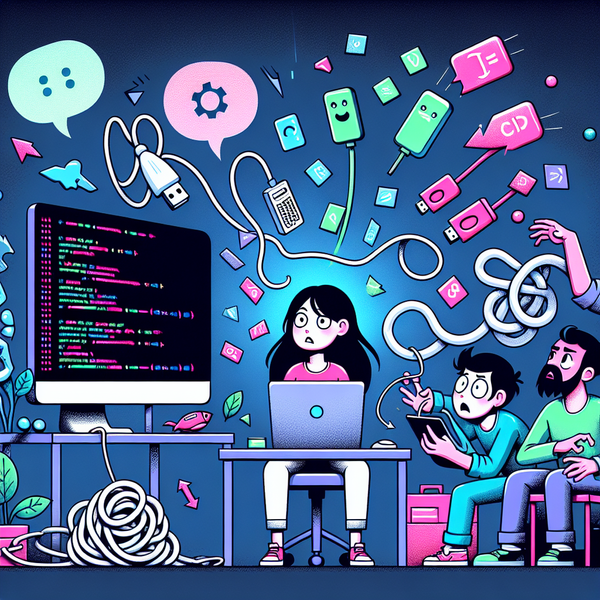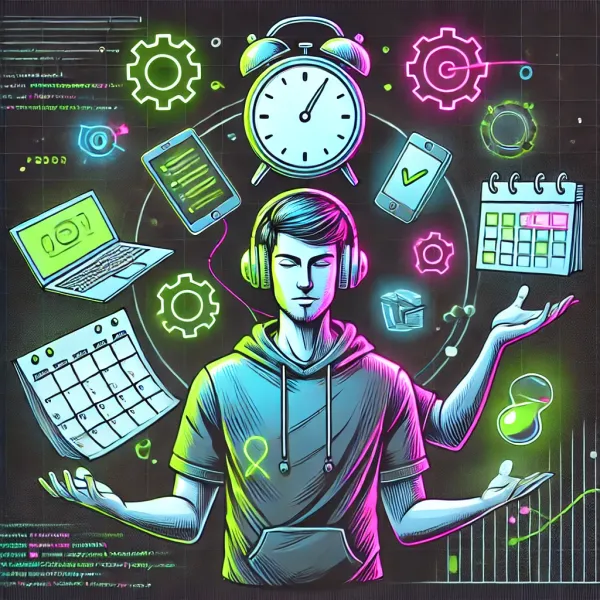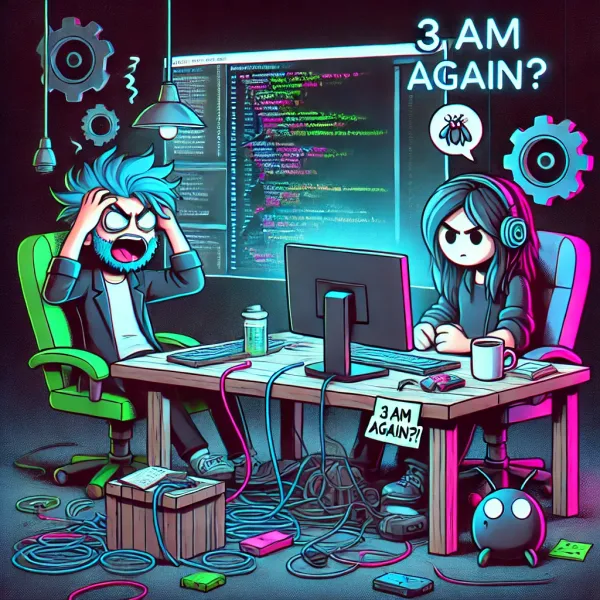The Role of Soft Skills in Developer Adaptability: Thriving in a Dynamic World
Discover how soft skills like communication, emotional intelligence, and adaptability enhance developer resilience in tech.
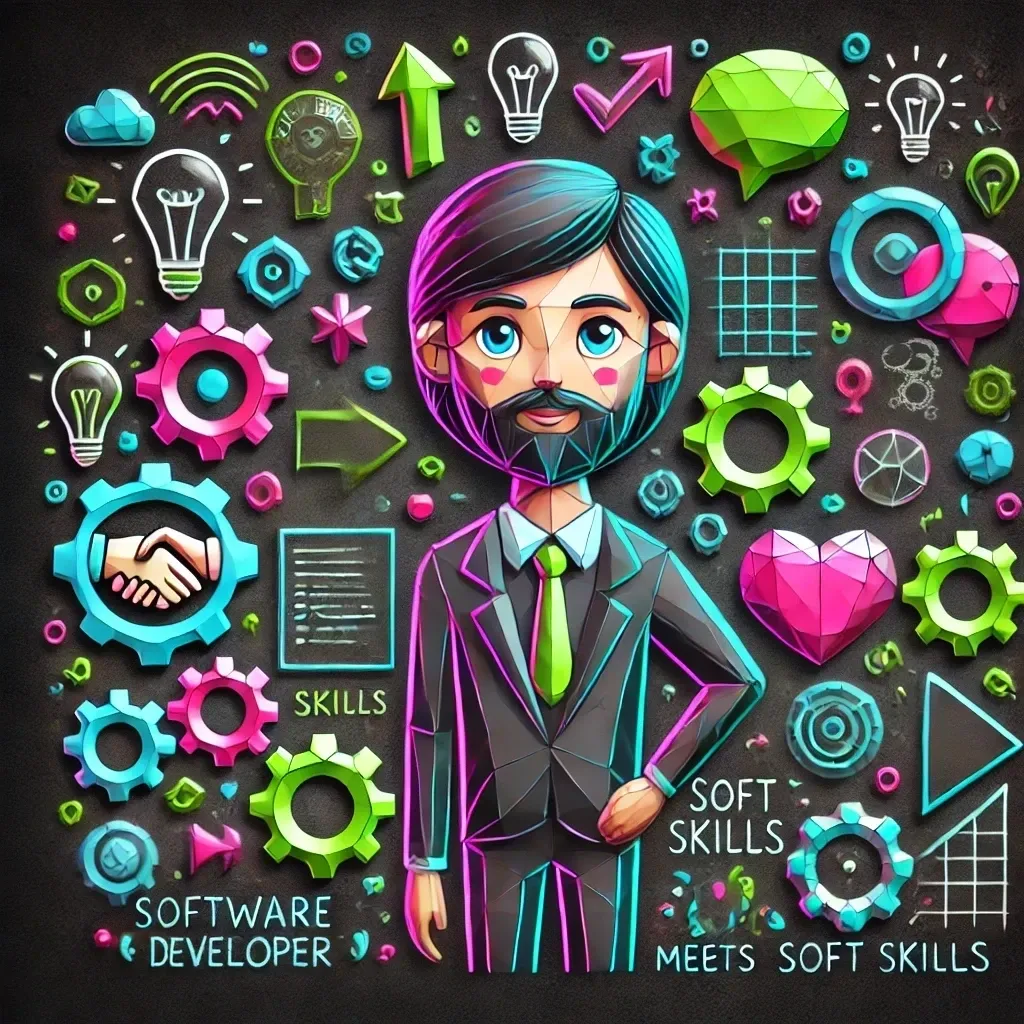
Sure, technical chops are crucial for software developers, but let’s not kid ourselves—soft skills are often the real game-changer. In a field where frameworks come and go like the tides, soft skills are what help developers navigate changes, adapt to shifting project goals, and work effectively within diverse teams.
Today, discuss role of soft skills in enhancing developer adaptability, why they matter, and how you can strengthen them to thrive in this ever-changing industry.
🔑 Key Takeaways 🔑
- Soft skills like communication, adaptability, and emotional intelligence are vital for thriving in a dynamic tech environment.
- Building emotional intelligence and fostering a culture of continuous learning enhance a developer's adaptability.
- Workshops, team-building activities, and intentional practice are practical ways to develop these key skills.
Importance of Soft Skills for Developers
Effective Communication
Being a great developer isn’t just about cranking out code—effective communication is one of the most crucial soft skills. It’s about bridging the gap between technical and non-technical members of a team and ensuring that everyone is on the same page. Whether you’re explaining a complex technical concept to a stakeholder or just syncing up with a fellow developer, clear communication is vital. It can help prevent misunderstandings that derail projects, and it lays the groundwork for smoother collaboration. Communication styles that encourage openness and clarity contribute massively to building trust and avoiding bottlenecks that hinder progress.
Problem-Solving Beyond Code
Problem-solving in software development goes beyond the technical realm. Yes, debugging and finding solutions are essential parts of the job, but effective problem-solving also involves critical thinking and adaptability. Being adaptable means you’re not just solving today’s problem—you’re positioning yourself to handle whatever tomorrow throws at you, which is key in an industry where the tools and best practices are constantly evolving. The ability to think creatively, analyze situations critically, and come up with innovative solutions is what separates a decent developer from an exceptional one.
Teamwork and Collaboration
No dev is an island, and successful projects almost always require collaboration. Whether it’s pair programming, managing production incidents, or contributing to a new feature, developers must work effectively with others. Teamwork is a skill that requires empathy, active listening, and respect for others’ perspectives—all qualities that enhance adaptability. When every team member can collaborate well, it becomes easier to adapt to changes in project requirements or team dynamics.
How Soft Skills Contribute to Adaptability
Adaptability and Continuous Learning
The tech landscape changes fast—new technologies, tools, and methodologies can become mainstream in a blink. Adaptability is the ability to pivot in response to these changes, and it’s closely tied to a willingness to engage in continuous learning. Developers who stay curious and commit to ongoing skill development are the ones who thrive. This could mean picking up a new programming language, attending conferences, or simply keeping up with industry blogs. A culture that values continuous learning helps developers remain flexible and relevant in an ever-changing field.
Emotional Intelligence and Empathy
Soft skills aren’t just about managing tasks—they’re also about managing emotions. Emotional intelligence (EQ) is the ability to recognize, understand, and manage your own emotions as well as empathize with others. EQ contributes directly to adaptability because developers who can manage their emotions are better equipped to handle stress, deal with unexpected project changes, and maintain productive relationships with team members. Empathy, in particular, is crucial for understanding user needs and for working effectively with colleagues who may be struggling. High EQ is what makes tough situations more manageable, especially when team dynamics are affected by sudden changes.

Key Soft Skills for Enhancing Adaptability
Time Management
In a world where project priorities can change overnight, time management is a superpower. Being able to prioritize tasks, manage your workload, and ensure you’re focusing on what’s important is essential for navigating sudden shifts. Developers who are skilled at time management can juggle multiple responsibilities effectively, making it easier to adapt to new priorities without dropping the ball.
Conflict Resolution
Projects can be stressful, and stress sometimes leads to conflict. Developers with solid conflict resolution skills are better able to navigate disagreements, whether they’re about technical approaches or differing opinions on how to tackle a problem. Instead of letting tensions fester and disrupt the team’s workflow, being able to mediate or resolve conflicts helps maintain harmony and productivity. This is especially valuable when adapting to changes, as it ensures everyone can stay focused on the goal rather than the drama.
Networking and Cultural Awareness
In an increasingly global and diverse tech industry, networking and cultural awareness are key to adaptability. Networking helps developers stay updated on industry trends, gain new perspectives, and build a support system for tackling challenges. Meanwhile, cultural awareness ensures that you can work effectively in diverse teams, respecting different viewpoints and approaches to problem-solving. This flexibility makes developers more adaptable when shifting between projects, teams, or even companies.
Practical Steps to Develop These Soft Skills
Engage in Workshops and Training
Developing soft skills takes intentional practice. Workshops and training sessions focused on communication, emotional intelligence, and adaptability are great ways to build these competencies. A culture that encourages continuous learning, where attending a workshop or pursuing additional training is supported, leads to a more adaptable and resilient team. These sessions are particularly helpful in building a growth mindset, which is foundational for adaptability.
Participate in Team-Building Activities
Team-building activities might sound cheesy, but they actually work wonders for enhancing collaboration, empathy, and communication. Whether it’s a coding challenge, a hackathon, or even an escape room activity, these events help team members understand each other’s strengths and weaknesses, making collaboration smoother. Such understanding ultimately enhances the team’s adaptability during times of change by ensuring everyone knows how to best support one another.
Conclusion
The role of soft skills in developer adaptability can’t be overstated. In an industry that changes faster than you can deploy a hotfix, soft skills like effective communication, emotional intelligence, and time management are what set developers up for long-term success. They help developers navigate shifts in project requirements, work well with others, and continue learning even when the landscape changes. By focusing on developing these skills, you’re not just surviving in the tech world—you’re thriving.
Ready to level up your adaptability? Start by focusing on your soft skills—attend that workshop, build that network, and most importantly, stay curious.

